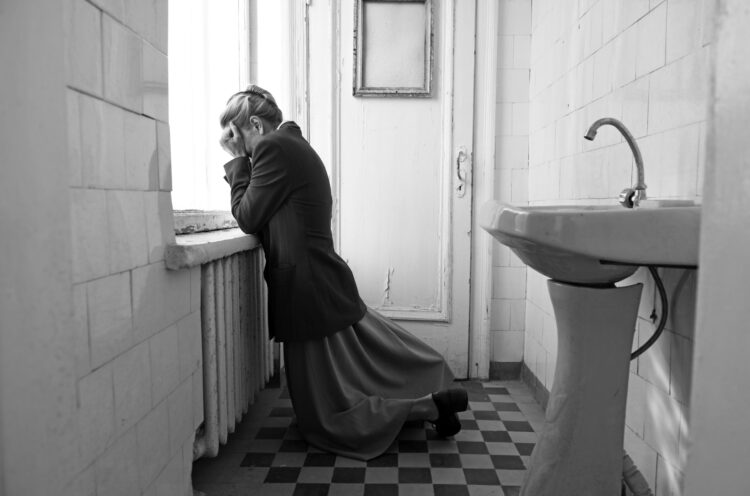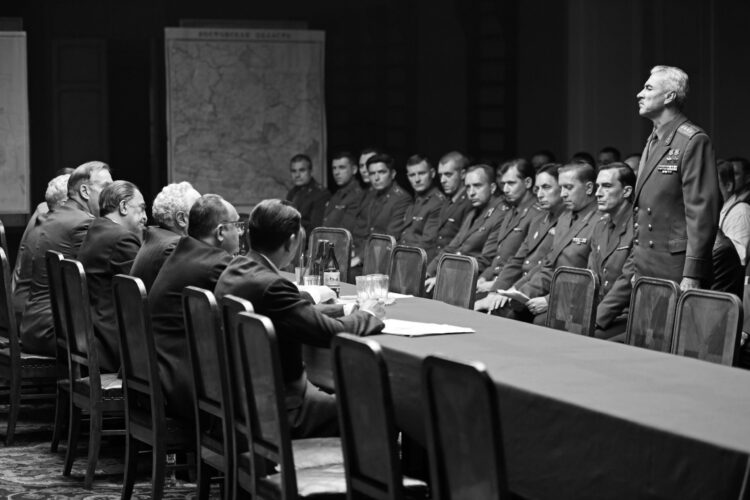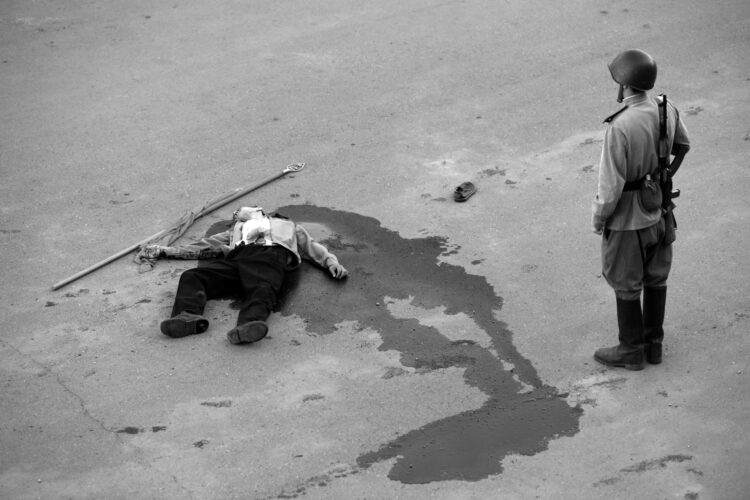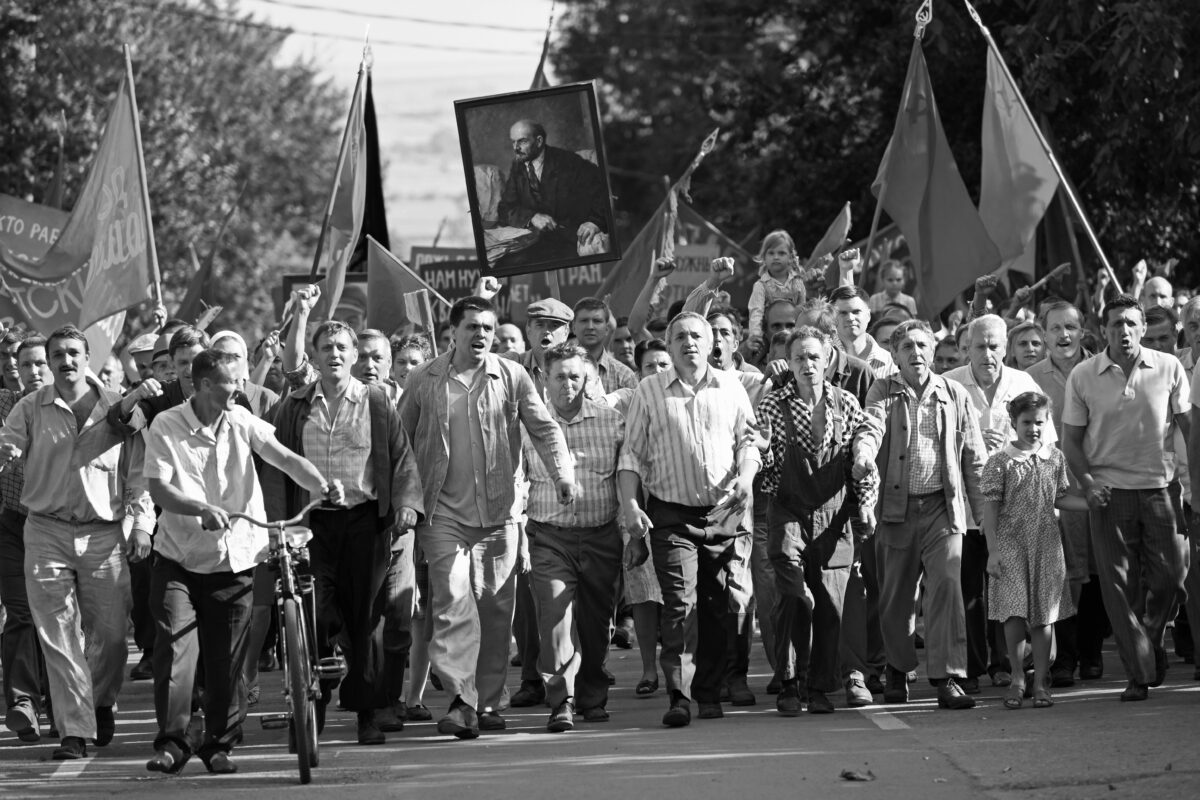Russia’s Academy Award submission this year in the category of best foreign film, Dear Comrades!, is a taut political drama that delves into the overlapping themes of faith, corruption and disillusionment.
Opening in Toronto at the TIFF Bell Lightbox on February 5, Andrei Konchalovsky’s gritty black-and-white movie unfolds in Novocherkaask, a small provincial town in the now-defunct Soviet Union, in 1962. It turns on a middle-aged Communist Party functionary who must deal with a crisis of conscience after factory workers go on strike. The plot is inspired by a real incident.
When Lyuda (Julia Vysotskaya), a single mother, hears that food prices are about to rise, she doesn’t rush down to the nearest shop and line up in a long queue to buy what little supplies are still available to the rest of the folks in her remote town in southeastern Russia.
Being an apparatchik privy to special privileges, she sneaks into the backroom of the store, where an obliging clerk hands her whatever she needs or desires. In exchange for this favor, Lyuda promises to give her a scarce commodity: pantyhose.
This brief scene exposes a facet of Soviet communism that its most ardent defenders tried to conceal. Contrary to the rhetoric of the 1917 Bolshevik revolution, the Soviet Union is not an egalitarian society. With the right connections, a Soviet citizen can enjoy a better standard of living than the masses. Since Lyuda is so fortunate, she can afford to be sanguine. The food shortages are merely a “temporary hardship,” she says.

The workers of a local locomotive plant do not share her spirit of optimism. Having declared a strike, they surround the plant, sending Communist Party officials into a state of panic. In short order, a KGB officer and two “higher-ups” from the ruling Politiburo in Moscow arrive to quell the rebellion.
Addressing a coterie of cowed officials, an important man in a uniform admonishes them. “You fucked up,” he says, ordering ammunition to be assigned to an army detachment. “Soldiers without munitions are not soldiers,” he barks, claiming that “criminals” are on the rampage and reminding them that this region has a history of counter-revolutionary activity.
At a special meeting to deal with the deteriorating situation, Lyuda, a loyal Communist, suggests that the strikers should be arrested. An army general is more conciliatory, saying that brute force should not be used against the people.

Back at her cramped flat, which she shares with her grizzled grandfather and 18-year-old daughter, Lyuda speculates that the strikers are alcoholics and that they are “walking over” Joseph Stalin’s name. “How did this happen?” she wonders.
Workers carrying banners of Vladimir Lenin, a Bolshevik hero, converge on two tanks blocking a road. At Communist Party headquarters, soldiers open fire on a mob, killing and scattering demonstrators and onlookers.

Lyuda watches with horror as innocent people are shot. She then begins searching for her daughter, Svetka, a dissident who has disappeared. Fearing the worst, Lyuda looks for Swetka at the morgue and hospital.
Like everyone else, Lyuda is compelled to sign a pledge of secrecy promising she will not speak about the atrocities she has just witnessed. Meanwhile, the KGB takes further measures to cover up the mess.
Konchalovsky’s sympathies lie entirely with the people. This emerges with clarity when an army general courageously claims the strikers were merely exercising their “constitutional rights.”
Loginov (Vladislav Komarov), a relatively sympathetic KBG officer, offers to help Lyuda find Swetka. The search takes them to a cemetery in the countryside. By now, Lyuda’s confidence in the system has been shaken, but she still admires the late Stalin as a savior. “We can’t do without him,” she murmurs.
Clearly, Lyuda is seriously conflicted, and this contradictory mood pervades Dear Comrades!
